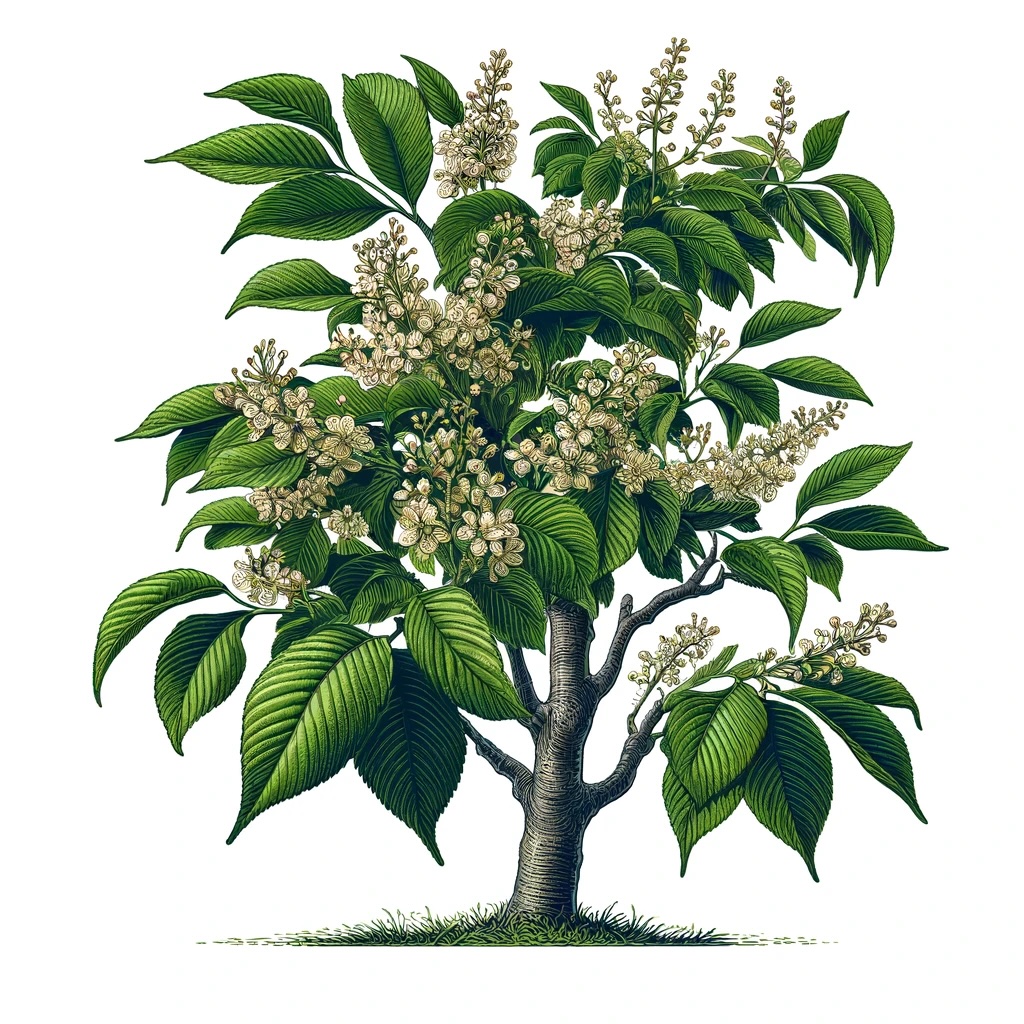This website contains affiliate links for products I use and love. If you take action (i.e. subscribe, make a purchase) after clicking a link, I may earn some tea money, which I promise to drink while creating more helpful content like this.
- Home
- Herb Index
- Monograph
Artichoke Leaf: Nature's Digestive and Liver Supporter
Jump to Recipes
The information provided on this website is for educational purposes only, and is not FDA approved. It is not to be considered health advice. Always do your own research and seek the guidance of a qualified healthcare practitioner before working with any herb. Herbal Ella is not liable for any action or inaction you take with the materials and information provided. Read here for more information.

Artichoke
leaf, derived from the thistle-like Cynara scolymus plant, has a long history
of culinary and medicinal use. Renowned for its potential benefits on digestion
and liver health, artichoke leaf is valued both as a vegetable and an herbal
remedy.
Common Name: Artichoke Leaf
Scientific Name: Cynara scolymus
Botanical Overview
Family: Asteraceae
Identification (Physical Description): The artichoke plant produces large, spiky, and greenish-purple flower heads. The leaves, particularly those at the base, are harvested for medicinal use.
- Parts Used Medicinally: Leaves
- Habitat: Native to the Mediterranean region, artichoke is now cultivated in various temperate climates.
Herbal Actions
- Primary Pharmacological Properties:
- Hepatoprotective (Supports Liver Health): Artichoke leaves are renowned for their hepatoprotective properties, meaning they support and promote the health of the liver. The active compounds in artichoke leaves, such as cynarin and caffeoylquinic acids, help enhance liver function. They aid in the production of bile, which is essential for the digestion and absorption of fats. By supporting the liver's detoxification processes and optimizing bile production, artichoke leaves contribute to overall liver health. This hepatoprotective action makes artichoke leaves a valuable herb for individuals seeking to maintain or improve liver function.
- Choleretic (Stimulates Bile Production): Artichoke leaves have choleretic properties, meaning they stimulate the production and secretion of bile from the liver into the gallbladder. Bile is essential for emulsifying fats and aiding in their digestion. By promoting the release of bile, artichoke leaves facilitate the digestion of dietary fats and support the body's ability to absorb fat-soluble nutrients. This choleretic action can be especially beneficial for individuals with digestive complaints related to fat absorption.
- Digestive Bitter: Artichoke leaves are known for their digestive bitter action. Bitter compounds in the leaves, such as cynarin, stimulate taste receptors in the mouth and trigger the production of digestive juices in the stomach. This bitter taste enhances the overall digestive process by increasing saliva production, promoting gastric acid secretion, and aiding in the breakdown of food. Artichoke's digestive bitter properties can help alleviate symptoms of indigestion, bloating, and discomfort after meals, making it a valuable herb for digestive support.
- The combination of these primary pharmacological properties in artichoke leaves underscores their role as a digestive and liver-supporting herb. Whether used in traditional cuisine or herbal remedies, artichoke leaves offer a range of benefits for those seeking to enhance their digestive and liver health.
Energetic Qualities and Taste
- Energetic Properties According to Herbalism Traditions: Cooling
Medicinal Uses
- Artichoke leaf is traditionally used to support digestive health.
- Its bitter compounds stimulate the production of digestive juices, promoting optimal digestion and nutrient absorption.
- The choleretic effects of artichoke stimulate the liver to produce bile, aiding in the breakdown of fats.
- Liver Health:
- Artichoke leaf is known for its hepatoprotective properties, helping to maintain a healthy liver.
- It may support liver function by promoting detoxification and the elimination of waste products.
How
It Works in the Body:
- Bitter compounds in artichoke leaf, such as cynarin, stimulate taste receptors, triggering the release of digestive enzymes and enhancing overall digestion.
- Choleretic effects increase bile production, supporting the emulsification and absorption of fats.
- Artichoke's antioxidant properties contribute to liver health by neutralizing free radicals.
Synergies:
- Combining artichoke leaf with other digestive herbs like dandelion or ginger may enhance its beneficial effects.
Culinary Uses
- How the Herb is Used in Cooking: Artichoke hearts and young leaves are commonly used in culinary preparations, such as salads, dips, and side dishes. While the culinary use is widespread, the medicinal use is often in the form of extracts or supplements.
- Flavor Profile: Slightly bitter and earthy.
Contraindications and Precautions
- Possible Side Effects: Generally well-tolerated, but some individuals may experience mild digestive discomfort.
- Interactions with Medications or Conditions: Artichoke may interact with medications that affect bile flow. Consultation with a healthcare professional is recommended, especially for individuals with gallstones or bile duct obstruction.
- Special Considerations (Pregnancy, Children): Pregnant and breastfeeding women should consult with a healthcare professional before using artichoke supplements.
Cultivation Tips
- Growing Conditions: Artichoke plants thrive in well-drained soil and full sun. They are often grown as perennials in suitable climates.
- Harvesting Methods: Harvest mature leaves before flowering for optimal medicinal benefits.
Historical Use and Folklore
- Traditional Uses: Artichoke leaves have a rich history of use that spans centuries, particularly in Mediterranean cuisine and traditional medicine. The tender, inner leaves of the artichoke have been prized for their culinary and medicinal properties. In traditional herbal medicine, artichoke leaf extracts were used to support digestive health and promote liver function. The artichoke's association with digestive wellness has made it a valuable herb in traditional remedies, often used to alleviate symptoms like indigestion and bloating.
- Cultural Significance: The artichoke holds special cultural significance in Mediterranean countries, where it is celebrated as a culinary delicacy. It is not only a staple in Mediterranean cuisine but also a symbol of regional pride. In places like Italy and France, artichokes are prepared in a variety of traditional dishes, showcasing their versatility and unique flavor. They are often featured in appetizers, salads, and side dishes, and their tender hearts are considered a delicacy. Additionally, artichokes are used in festive and celebratory meals, reflecting their role as a symbol of abundance and prosperity in Mediterranean culture.
- The artichoke's dual significance in both traditional medicine and regional cuisine underscores its enduring importance and cultural value in Mediterranean societies. Its versatility and rich history continue to make it a cherished ingredient in kitchens and a source of pride in these regions.
Medicinal Preparations
Artichoke
Leaf Extract:
- Obtain a standardized artichoke leaf extract from a reputable source.
- Follow the recommended dosage on the product label.
- Consult with a healthcare professional before incorporating artichoke supplements into your routine.
Artichoke
Leaf Infusion:
- Steep dried artichoke leaves in hot water for 10-15 minutes.
- Strain and drink as a digestive tea before meals.
Homemade
Artichoke Tincture:
- To make your own artichoke leaf tincture, you'll need dried artichoke leaves and alcohol (such as vodka or brandy).
- Fill a glass jar with dried artichoke leaves, leaving some space at the top.
- Pour alcohol over the leaves, ensuring they are fully covered.
- Seal the jar tightly and store it in a cool, dark place for about 4-6 weeks, shaking it gently every few days.
- After the steeping period, strain the tincture into a clean glass bottle.
- Label the bottle with the date and contents.
- Take a small dose as needed.
Recent Articles
-
Wild Cherry Monograph: Wild Cherry: Nature's Respiratory Ally
May 02, 24 04:52 PM
Discover the healing potential of Wild Cherry with our comprehensive monograph. Explore its benefits and uses for respiratory health. -
DIY Herbal Remedies for Respiratory Health
May 02, 24 03:46 PM
Explore easy DIY herbal remedies for respiratory health with Herbal Ella. Learn to make teas, tinctures, and more to breathe better naturally -
Understanding the Respiratory System - Anatomy and Functions
May 02, 24 03:23 PM
Discover the respiratory system's anatomy and functions with clear visuals and simple explanations to keep you breathing healthily
* Privacy Policy * Disclaimer *










